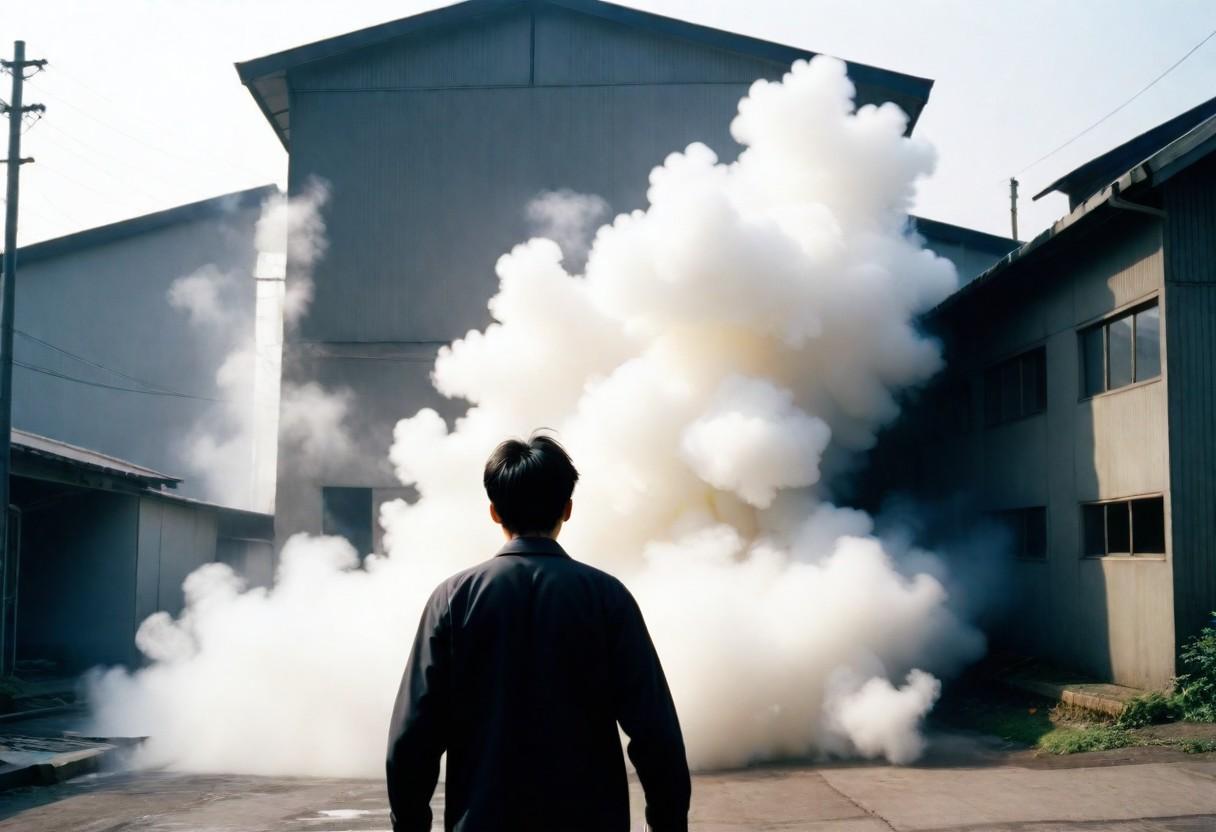During summer, different accidents can easily happen, just like the case of an ice factory in a community where ammonia leaked, or there was a blast of ammonia tank. The news is increasingly reported, and the case is a danger close to us. How dangerous this chemical is and how we can cope with it are here answered by Asst. Prof. Chusak Poonsawat, Ph.D., a lecturer of the Department of Chemistry, Faculty of Sciences, Khon Kaen University.

“Ammonia, NH3, is a colorless chemical with smell. It weighs less than air and so naturally floats high above. It is also easily volatile, spreading fast and dissolving well in water.”

Asst. Prof. Chusak Poonsawat explained that ammonium in general is used in the cooling system of ice factories, or agricultural factories such as those manufacturing the ammonium nitrate fertilizer. It is also used in the rubber industry to make the rubber liquid dissolve. When well diluted, it can be used as an inhalant.
In the case of ammonia used as the cooling agent in ice factories, there is the process that changes ammonia from liquid to gas, through an endothermic reaction. The emerging gas is pressed back into liquid and is circulated continuously in the pipe. As ammonia is a corrosive agent, if the pipe has been used for a long time, the chance of ammonia leakage is high.
“Heat or hot temperature is one accelerating agent making the gas move faster until it corrodes or crashes the pipe surface. This increases the risk of ammonia leakage.”
However, ammonia’ flammability is at level 1, that is it is flammable when the temperature is higher than 93 degrees Celcius. Therefore, the case of explosion of ammonia tank could have taken place from spark that causes burning. If the gas was accumulated in a big amount, it could lead to explosion finally.

Asst. Prof. Chusak Poonsawat added that if there is ammonia leakage in a closed area, and people inhale it in a big amount, irritation can take place on the eye or nose tissues. If inhalation lasts for a long time, breathing will be difficult until the person may become unconscious, and may die. Therefore, if ammonia leakage is reported, evacuation from the site has to be done immediately. If anyone is unconscious, first aid and CPR must be performed at once and an ambulance called to take the patient to the hospital. More importantly, do not touch the skin area that is affected. Saline water can be used to clean the area. As for the factory itself, if the weather is hotter, then equipment should be regularly checked to see if all tools and equipment are in the good condition for operation in order to lessen the loss that may bring impact to life and assets.

Asst. Prof. Chusak Poonsawat finally said that chemistry is a basic science that connects with many things in our daily life. Everyone should be open to this field and find answers from experiments. He said that students should know that the subjects you study are not hard. You can learn and when you learn you will find that it is fun. On August 17-19, the Faculty of Sciences of Khon Kaen University will organize the Science Week that opens the learning resource for youths in Isan to get to know each field of sciences, especially chemistry, so that you will see its role in the daily life.

News / Photos: Phanit Khatnak

